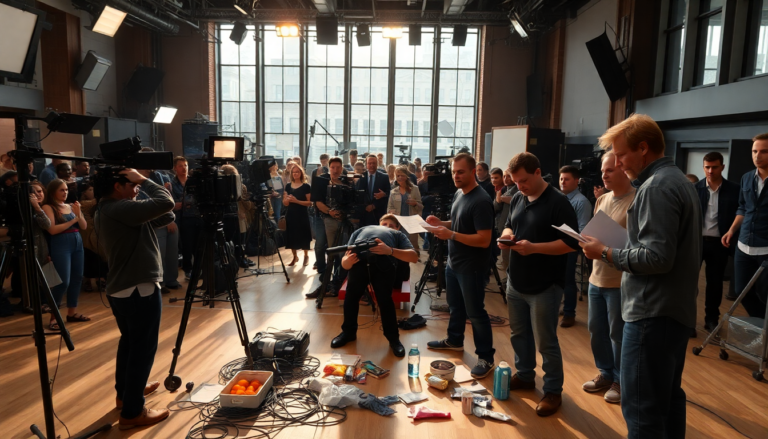Argomenti trattati
Behind the Scenes of Reality TV
In a recent episode of the podcast Just B with Bethenny Frankel, former Bravo producer Patrick McDonald opened up about the often-overlooked hardships faced by reality TV cast and crew. His insights reveal a cutthroat environment where emotional well-being is frequently sacrificed for entertainment value.
The Harsh Reality of Production
Patrick highlighted the relentless production schedules that leave little room for rest or recovery. He emphasized that there are no human resources representatives on site, raising concerns about the lack of oversight and support for those involved in filming. “I think Bravo should send someone, perhaps a compliance officer, to ensure everyone is treated humanely and has adequate breaks,” he suggested. This call for change underscores the urgent need for a structured support system in the reality TV industry.
These so-called “trips”—major cast getaways—are a staple of Bravo’s franchises. They often lead to the most emotionally charged moments of the season, characterized by long hours and high-pressure situations. Patrick recounted working a staggering 22-hour day, only to be told to quickly regroup for yet another demanding shooting schedule. Such extreme conditions can lead to mental exhaustion and emotional breakdowns among cast members.
Emotional Toll and the Pressure to Perform
One of the most heart-wrenching aspects of Patrick’s job was witnessing cast members struggle with personal issues while expected to perform on camera. He recalls specific instances, such as Shannon Beador from The Real Housewives of Orange County, who, despite her challenges, was compelled to maintain a façade for the audience. Patrick expressed empathy for her situation, recognizing the immense pressure placed on cast members to deliver drama while navigating their personal crises.
- Pressure Cooker Environment: Long hours, heightened emotions, and alcohol consumption create a volatile atmosphere.
- Emotional Breakdown: Cast members often face personal challenges while filming.
- Support Systems Needed: The absence of mental health resources during production is alarming.
The Dark Side of Reality TV
Patrick’s experience also includes battling his own addiction while working on a reality show, which adds another layer to the discussion of mental health in the industry. He candidly shared how he would turn off his microphone to cope privately, fearing that his struggles would be exploited for ratings. “It’s difficult to maintain sobriety when your life is on display, and that’s exactly what producers often want to highlight,” he explained.
Such narratives around addiction and trauma, Patrick noted, are often sensationalized rather than addressed with the seriousness they deserve. Bethenny Frankel echoed this sentiment, stating that production teams often feel disappointed when cast members choose sobriety over drama. This highlights a troubling culture where personal struggles become mere content for entertainment.
A Call for Change in Reality TV Production
Now, as Patrick steps away from the industry, he feels compelled to speak out about these pervasive issues. He believes that by sharing his experiences, he can bring attention to a system that needs significant reform. “Nothing changes if nothing changes. Someone needs to shed light on these problems from the perspective of producers and crew members,” he asserted.
Patrick’s revelations have resonated with others in the industry, prompting a broader conversation about the need for better protections for all involved in reality TV production. Bethenny has been a vocal advocate for these changes, acknowledging the courage it takes for individuals to share their stories, especially when they do not hold the same financial security as others in the industry.
- Industry-wide Concern: Patrick stresses that the issues he raised are not isolated to one show but are systemic across the reality TV landscape.
- Advocacy for Change: Both Patrick and Bethenny are pushing for a better working environment for cast and crew.
- Empathy and Understanding: Recognizing the humanity behind the camera is essential.
Ultimately, Patrick McDonald wants to foster a dialogue that leads to meaningful change in the reality TV industry. His hope is for a future where the well-being of cast and crew is prioritized, ensuring that their experiences are acknowledged and supported. The call is clear: it’s time to start believing those who share their truths.
For more insights, you can listen to both parts of Bethenny’s conversation with Patrick McDonald on platforms like Spotify and Apple Podcasts.

